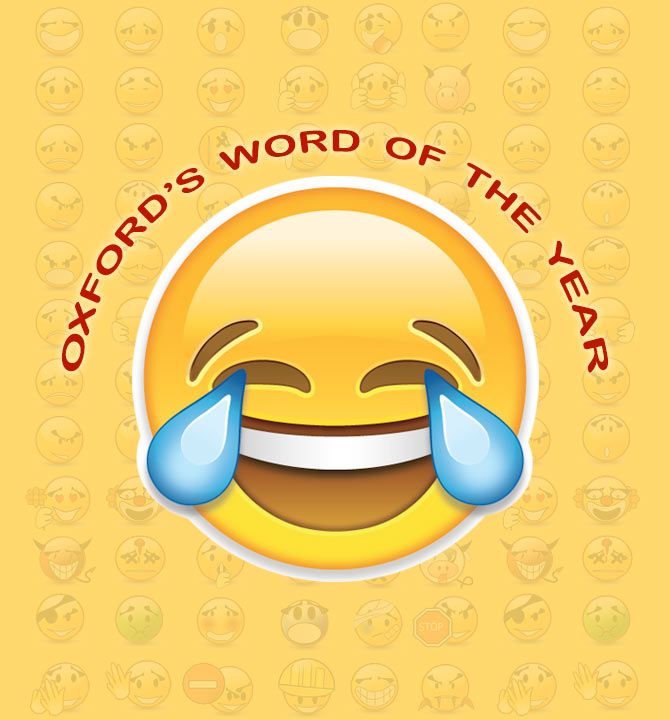Oxford Dictionaries has announced the emoji, commonly known as 'Face with Tears of Joy', as its "Word" of the Year for 2015.
 The Oxford Dictionaries Word of the Year is a word or expression chosen to reflect the passing year in language.
The Oxford Dictionaries Word of the Year is a word or expression chosen to reflect the passing year in language.
Every year, the Oxford Dictionaries team reviews candidates for word of the year and then debates their merits, eventually choosing one that captures the ethos, mood, or preoccupations of that particular year.
Instead of choosing a traditional word, Oxford Dictionaries has chosen a pictograph, the 'Face with Tears of Joy' emoji, to reflect the sharp increase in popularity of emoji across the world in 2015.
This year Oxford University Press had partnered with leading mobile technology business SwiftKey to explore frequency and usage statistics for some of the most popular emoji across the world. 'Face with Tears of Joy' came out a clear winner.
According to SwiftKey's research, 'Face with Tears of Joy' was the most heavily used emoji globally in 2015.
Their research shows that the character comprised 20 per cent of all emoji used in the UK in 2015, and 17 per cent of all emoji used in the US.
This compared to 4 per cent and 9 per cent respectively in 2014.
In the US the next most popular emoji was 'Face Throwing a Kiss,' comprising 9 per cent of all usage.
"Emoji culture has become so popular that individual characters have developed their own trends and stories," notes Casper Grathwohl, president of Oxford Dictionaries.
"They can serve as insightful windows through which to view our cultural preoccupations, so it seemed appropriate to reflect this emoji obsession by selecting one as this year's "word" of the year.
The word emoji
The similarity of the Japanese word emoji to the English word emoticon makes it easy for English speakers to remember, but the resemblance is entirely coincidental: emoji is derived ultimately from the Japanese words e (picture) and moji (letter, character), whereas emoticon is from the English words emotion and icon.
The Word of the Year 2015 shortlist
In addition to the Word of the Year itself, Oxford Dictionaries staff have put together a shortlist of notable words that have gained linguistic currency during 2015.
These range across a variety of subjects, from global politics and current affairs, to technology and popular culture.
In alphabetical order, the shortlisted words for the Oxford Dictionaries Word of the Year 2015 are as follows:
ad blocker, noun
A piece of software designed to prevent advertisements from appearing on a web page.
Brexit, noun
A term for the potential or hypothetical departure of the United Kingdom from the European Union.
Dark Web, noun
The part of the World Wide Web that is only accessible by means of special software, allowing users and website operators to remain anonymous or untraceable
lumbersexual, noun
A young urban man who cultivates an appearance and style of dress (typified by a beard and checked shirt) suggestive of a rugged outdoor lifestyle
on fleek, adjective (usually in phrase on fleek)
extremely good, attractive, or stylish
refugee, noun
A person who has been forced to leave their country in order to escape war, persecution, or natural disaster.
sharing economy, noun
An economic system in which assets or services are shared between private individuals, either free or for a fee, typically by means of the Internet.
they (singular), pronoun
Used to refer to a person of unspecified sex.











 © 2025
© 2025